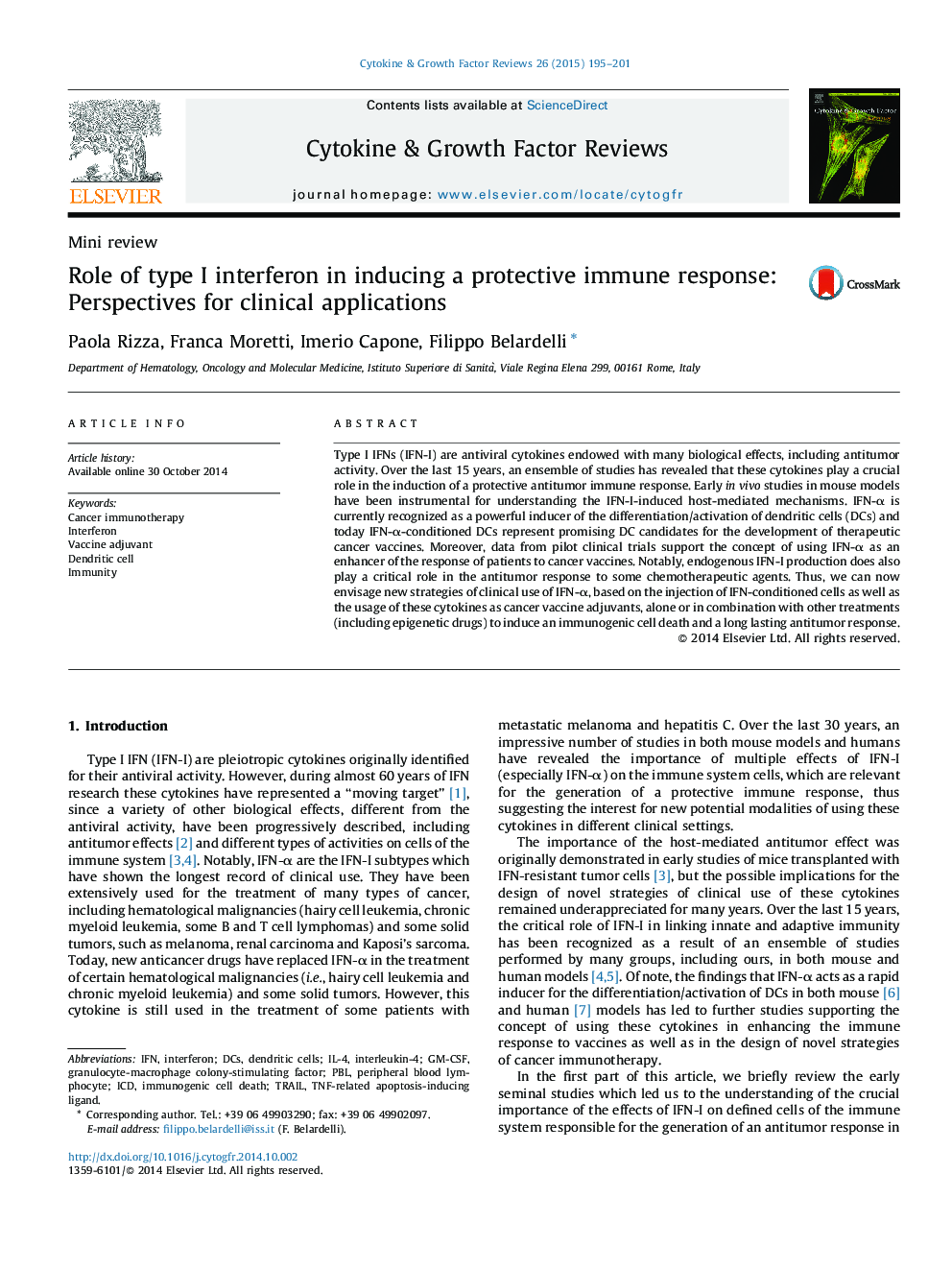| Article ID | Journal | Published Year | Pages | File Type |
|---|---|---|---|---|
| 2170502 | Cytokine & Growth Factor Reviews | 2015 | 7 Pages |
•Endogenous IFN-I plays a role in the innate control of tumor growth.•IFN-α acts as inducer for the differentiation/activation of dendritic cells.•IFN-I is crucial in linking innate and adaptive immunity.•IFN-α can act as a vaccine adjuvant.
Type I IFNs (IFN-I) are antiviral cytokines endowed with many biological effects, including antitumor activity. Over the last 15 years, an ensemble of studies has revealed that these cytokines play a crucial role in the induction of a protective antitumor immune response. Early in vivo studies in mouse models have been instrumental for understanding the IFN-I-induced host-mediated mechanisms. IFN-α is currently recognized as a powerful inducer of the differentiation/activation of dendritic cells (DCs) and today IFN-α-conditioned DCs represent promising DC candidates for the development of therapeutic cancer vaccines. Moreover, data from pilot clinical trials support the concept of using IFN-α as an enhancer of the response of patients to cancer vaccines. Notably, endogenous IFN-I production does also play a critical role in the antitumor response to some chemotherapeutic agents. Thus, we can now envisage new strategies of clinical use of IFN-α, based on the injection of IFN-conditioned cells as well as the usage of these cytokines as cancer vaccine adjuvants, alone or in combination with other treatments (including epigenetic drugs) to induce an immunogenic cell death and a long lasting antitumor response.
